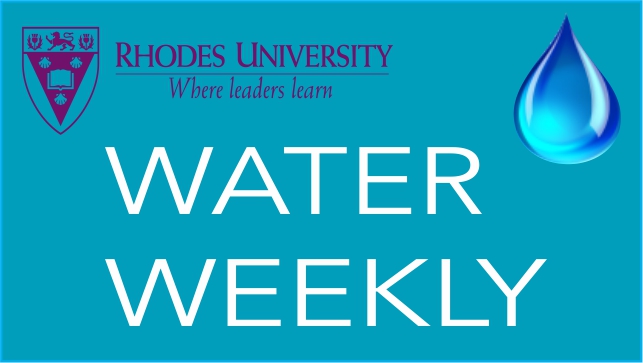
Welcome to our latest edition of Water Weekly. Please continue to #SaveOurWater by sticking to the 50 litres per person per day limit.
Water Workshop by IWR
On 30 May, as part of her VC Community Engagement Award lecture, Prof Tally Palmer and the Institute for Water Research (IWR) will be hosting a Water Workshop at City Hall at 5pm. A representative from the municipality and Rhodes University’s VC, Dr Sizwe Mabizela, will also be there to talk about Makhanda’s water situation, and the role residents can play. Everyone and anyone is welcome to attend.
Settler’s Dam, Howisons Poort Dam & Waainek Water Works
According to Amatola Water, Settler’s Dam is still out of commission (at 7.3%) and Howisons has dropped to 23.6%, which is expected to last for less than 15 days. MBB has stated that leaks have been reduced, but this is causing an increase in consumption. As people get used to having water, they explain, water use by residents goes up. Residents are being urged to please continue reducing water usage as much as possible, as we head towards Howisons drying up. The Municipality has indicated it is at the final stages of getting approval for a request to have borehole water fed into lay dams and Waainek.
James Kleynhans Water Works
There is a planned shutdown expected on 22 May, according to the Municipality. However, they are assuring residents that reservoirs will be filled and ready so as to have as little interruption to the water supply as possible.
The Municipality has indicated that this phase of the JK refurbishments (to be completed in this calendar year) include an upgrade that will ensure high-lying areas in the East have access to water in a longer-term and more sustainable way. They are also implementing more storage reservoirs on the Eastern side, and anticipate the new pipeline (connecting East to West) will be complete in 2021.
Consumption and water saving
The municipality is urging residents to reduce water consumption to 50 litres per person per day, or less if possible. We can no longer ignore the seriousness of the situation. To help you reach this limit, here are some basic water-saving tips:
1. Turn off the tap when you brush your teeth – this can save 6 litres of water per minute.
2. Place a cistern displacement device in your toilet cistern to reduce the volume of water used in each flush.
3. Take a shorter shower. Showers can use anything between 6 and 45 litres per minute. Consider getting an aerated shower head, which combines water and air, or inserting a regulator in your shower, which puts an upper limit on flow rates.
4. Always use full loads in your washing machine and dishwasher – this cuts out unnecessary washes in between.
5. Fix a dripping tap. A dripping tap can waste 15 litres of water a day, or 5,500 litres of water a year.
6. Kettles should not be filled to the brim but with just enough water for your needs. This will reduce your electricity bill too.
7. Avoid flushing the toilet unnecessarily. Dispose of tissues, insects and other waste in the trash rather than the toilet. Every time you flush the toilet, 12 litres of water is used. Use grey water - used water from baths, washing machines and other safe sources - to flush your toilet.
Q&A with Prof Hill
Did you know invasive plants threaten water security? Rhodes University’s Communications and Marketing Unit recently sat down with Distinguished Professor Martin Hill from the Centre for Biological Control, to discuss the history of invasive alien plant species in South Africa and why they are such a threat to our water resources.
Click here to read more.
Going forward
The Rhodes University community is reminded that it is not “business as usual”. We are in the throes of a significant water crisis and only if everyone does their part, will we overcome this.
Thank you for working through these difficult times with us. Please keep the conversation about #SaveOurWater going at communications@ru.ac.za.
